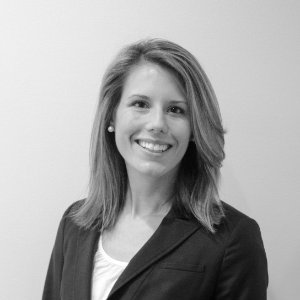Professional Feedback
Category : PROspective
From Elizabeth Hannapel, MPH (Alum, 2012):
Workplace feedback looks, sounds, and feels different from school feedback. Classroom feedback tends to come by way of test scores, comments on papers, and final grades. These methods of feedback revolve almost entirely around the accuracy and content of your work product. Workplace feedback can (and should!) include the content and quality of your work products, as well as your attributes as an employee. The latter is something that many young professionals struggle with. It can be uncomfortable and is often only reluctantly engaged with by employees and employers. Providing candid feedback on soft skills is difficult; employers may not feel confident in their own soft skills and it is a challenge to provide soft skill feedback that is actionable.
“It was impossible not to feel hurt (“Why don’t they like me?”) and defensive (“I’m getting my work done; if they don’t like it that’s their problem.”)”
I still remember the first time I received feedback about my approach to work. I was used to tackling my job duties and offering to help others. While that approach was beneficial for group projects in school, a colleague pointed out that it was creating friction with a group of colleagues with very different work styles. It was impossible not to feel hurt (“Why don’t they like me?”) and defensive (“I’m getting my work done; if they don’t like it that’s their problem.”) Neither of those helped me navigate my workplace or become a better team member.
“Only one of my ultimate objectives depended on the skills that were graded in school.”
What did help me was to step back and think about the feedback as an opportunity for improvement (rather than a critique of my identity.) I thought about my ultimate objectives: complete my job duties, foster collaboration, maintain open communication with colleagues, and have that communication be pleasant whenever possible. Notably, only one of those depended on the skills that were graded in school. I was able to realign my actions with those goals in mind, develop friendly workplace relationships, and was better able to recruit those same folks for support in other endeavors.
I graduated from Rollins with a MPH in Epidemiology in 2012. I now work for the Georgia Department of Public Health, and I interact with current Rollins students and recent alumni. Rollins students are well equipped for local and state public health job duties through their coursework. What Rollins students, and young professionals in general, could benefit from is openness to and active engagement with feedback.
“Often it is a gift we may not want, but a gift nonetheless.”
It is fundamentally harder to hear feedback on soft skills than on hard skills. It is particularly hard to remember that feedback is a gift. Often it is a gift we may not want, but a gift nonetheless. Soft skills are often heavily weighted in decisions on advancement. An employee may be technically brilliant, but without the soft skills to help drive the organization forward, their career goals may be stymied. Being open to improving both hard and soft skills helps to build a solid path for continued advancement.
As a potential employer, I can work to establish and improve mechanisms for feedback. Often in academic and government settings there isn’t much emphasis on feedback for soft skills.
“If you find yourself in a workplace without a formal feedback process, ask for one!”
This is a disservice to both the employee and the company. On-the-job training, and the corresponding evaluation processes, should reflect not only job-specific tasks but also the interpersonal skills that enable staff to navigate complex professional environments. Our team does not have a formal process for providing feedback to current students, and I’m working with others to establish one.
If you find yourself in a workplace without a formal feedback process, as either a student volunteer or a full-time-employee, ask for one! Reach out to your supervisor and establish regularly scheduled meetings where you can review not only your quantifiable job performance but also your soft skills. Your employer may have performance reviews, but they may not include feedback for professional skills.
“Request feedback and be open to it.”
Ask your supervisor “How do you think I’m performing with respect to interpersonal relationships and office dynamics? What can I do to improve my listening and communication skills? What areas should I further develop, and do you know of any resources or trainings that might be helpful?”
Request feedback and be open to it. Although difficult, this is a crucial component of continued development and a competitive advantage. Rollins offers many opportunities to prepare for public health work; Use this time to increase your technical knowledge AND your interpersonal skills that will help you succeed as a professional.
Additional Resources:
Ladders: How to Handle Negative Feedback Without Taking it Personally
Purdue CCO Blog: Receiving Feedback
MBO Partners: How to Identify and Improve Soft Skills
Training Industry: Expert Perspectives on Soft Skills

Elizabeth Hannapel graduated from Rollins in 2012 with a MPH in Epidemiology. While at Rollins, her interests included Infectious Diseases and Public Health Emergency Preparedness. Now, Liz serves as the state coordinator for legionellosis and shigellosis, and leads infectious disease outbreak investigations for the Georgia Department of Public Health. Follow Liz on Twitter @LizBitler.